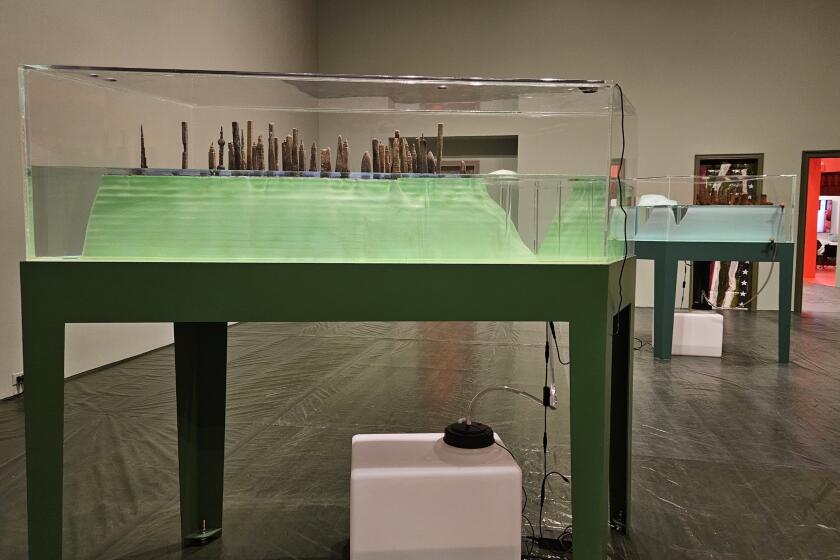TV AND THE GULF WAR : CNN Doesn’t Cower From Viewer Attacks
While airing Scud alerts and other Persian Gulf War news, CNN has found time to also air its dirty linen.
In an astounding departure for television--which almost always gives itself the last word--CNN has been running excerpts from letters and faxes about its Gulf War coverage three times daily since the start of hostilities.
The majority of these comments from viewers are critical.
They’re “a pretty good reflection of the letters we get,” CNN senior executive producer Bob Furnad said from Atlanta Friday. “I felt the audience wanted to be heard, and this was a way to let them know they weren’t reaching a bottomless pit.”
When it comes to airing viewer rebuttals, CNN’s competitors are the bottomless pit.
An irony of the war is that it’s made CNN at once more famous than ever and more criticized. Although a recent Times Mirror Center poll found that 61% of Americans think CNN is doing the best job of covering the war, the conflict has made TV’s only global 24-hour news network into almost as much a cause celebre as Saddam Hussein himself.
It seems only yesterday everyone was gushing love for CNN and that its Bernard Shaw, John Holliman and Peter Arnett were good bets for Mt. Rushmore for gutting it out in their Baghdad hotel room during the first U.S.-led air bombardment there.
But much of that goodwill was swept away by subsequent criticism of CNN’s hair-trigger journalism and Arnett’s more recent reports from Baghdad that he has made under heavy censorship. The critics began pelting CNN with written and verbal Scuds, many accusing CNN and Arnett of being irresponsible, if not traitorous, for presenting the Iraqi perspective.
“Shame on both of you!” wrote a Miami viewer whose angry words were printed and read on CNN Friday without rebuttal.
Shame? Oh, please. Despite going too far on occasion, CNN remains an incredible resource and has done nothing to merit falling on its knees and begging forgiveness.
Yet, very definitely shame on the rest of TV for being too cowardly to follow CNN’s example and air critical comments, the long-running viewer-response segment on “60 Minutes” being a rare exception.
Some newscasts (including on CNN itself) do solicit input by posting special telephone numbers that viewers can call to participate in quickie polls on specific topics. An example: KCAL Channel 9 last week asked viewers to vote “yes” or “no” on women serving in combat.
But these not only are meaningless Polaroids, they are self-serving gimmicks designed to entice the audience to tune in for the poll results.
War coverage has become television’s latest sexy topic, with just about every talk and news program hashing it over these days, some even taking calls on the subject from viewers. But the discussions are almost always generic, involving oblique references to “the press” as if the media were a faceless monolith or TV a single network or station with universal call letters.
Only CNN is bold enough to take it on the chin from its own viewers.
Viewer responses to CNN have just exploded since the war, Furnad said, with the network now averaging 1,300 to 1,500 calls and 300 to 500 letters and faxes a day, about 20 times more than usual.
Comments are running 3 to 1 against Arnett reporting from Baghdad, Furnad said. “We’re getting people who are just taking our heads off and others who are saying, ‘Don’t let anyone intimidate you.’ ”
Furnad said he didn’t know if CNN’s new viewer-letters policy would last longer than the war. “I’ve been pushing to do this for two years,” he said, “and now that we got it on, it will be easier to keep it on.”
And ensure that viewers, at least on occasion, get the last word.
More to Read
The biggest entertainment stories
Get our big stories about Hollywood, film, television, music, arts, culture and more right in your inbox as soon as they publish.
You may occasionally receive promotional content from the Los Angeles Times.






